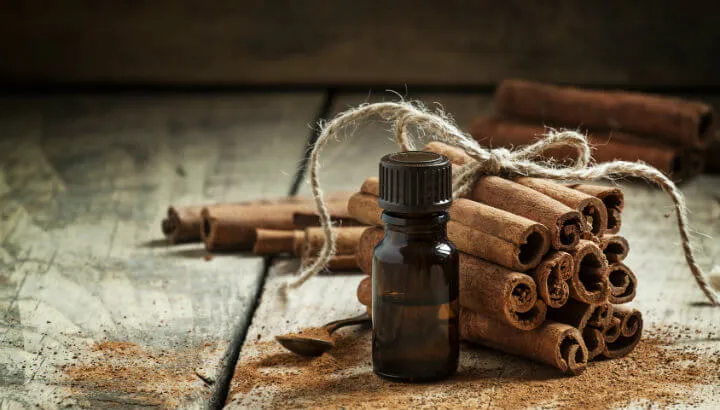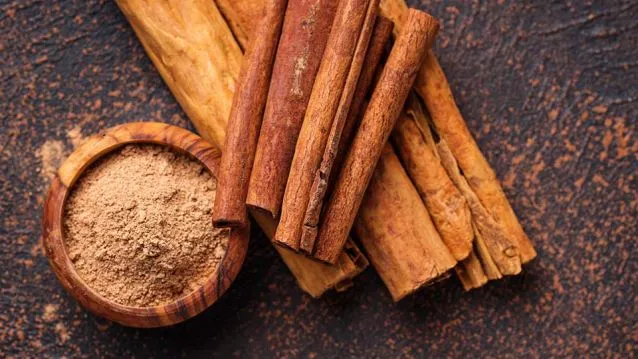Cinnamon is more amazing than you might think. Sure, this fragrant spice has gotten a bit of a bad name in recent years, thanks largely to the notorious cinnamon challenge. In excess, cinnamon can be toxic, but when used correctly, it can be a powerful all-natural remedy. Use it around the home to deter bugs, freshen the air and even improve cognitive performance. Read on to find out how!
1. Brain-boosting caffeine hit
Feeling that afternoon brain drain? Cinnamon has been proven to improve cognitive performance. The secret is that consuming cinnamon induces the production of sodium benzoate in the body. In turn, sodium benzoate stimulates the creation of new brain neurons, thus making it easier to retain new information.
For a real brain booster, use cinnamon tea instead of ordinary water for your afternoon coffee. Cinnamon coffee might be able to help you focus and increase memory. This is particularly good for rote learning, so anyone trying to cram for an upcoming exam or just memorize vocabulary in a new language should definitely try this one.

2. Bug spray
Not everyone likes cinnamon — least of all bugs. Mix a few drops of cinnamon leaf oil in a spray bottle and squirt the stuff around your home to get rid of pests like mosquitoes.
3. Cinnamon swizzle sticks
Add a dash of cinnamon to your hot chocolate, coffee or nightcap by using a cinnamon stick as a stirrer. This is especially nice in winter or can be used generally to add a bit of flavor to any hot drink.
4. Fragrant light bulbs
So this one might sound a bit weird but bear with me here. Turn off your lights and sprinkle a small amount of cinnamon oil on the bulbs. When you switch the lights back on, you’ll be treated to a delicious cinnamon fragrance throughout your home.

5. Apple cinnamon water
For a tasty treat, try our apple cinnamon water recipe. It may help boost your metabolism and could even potentially help with recovery from some infections. More importantly, though, it tastes awesome!
6. Insect repellent
Remember how bugs hate cinnamon? Add a few drops of cinnamon oil to your sunscreen and presto, you have an insect repellent that will keep you from getting bitten for hours.
7. Alternative to mothballs
It’s not just biting insects that despise cinnamon. Moths can’t stand the spice either. So if moths keep eating your clothing, try packing cinnamon in small sachets and scattering them around your wardrobe, closet or clothing drawers. They smell better than mothballs, and can even imbue your clothing with a fresh, clean scent. Yum!
8. Cinnamon face wash
Ever feel gungy in the morning? If so, try waking up with a refreshing cinnamon face wash. Just mix around 20 drops of cinnamon oil with a tablespoon of coconut oil and three tablespoons of either honey or aloe vera. You might also want to add a tablespoon of almond oil or similar for consistency. Apply for five minutes, two to three times a week.
Many users say this treatment can improve the look of your skin. At the very least, it’s a pleasant alternative to harsh soaps. Bear in mind that some people might find this mixture irritating, especially if applied to eczema-prone skin. Try a little bit on a small area first to ensure you don’t have a negative reaction.
9. Ease a sore stomach
Cinnamon has been used for centuries as an all-natural stomach soother. To try it for yourself, boil the equivalent of around a tablespoon of cinnamon bark in a cup of water for ten minutes, strain and drink as tea. Try a small amount first to make sure it doesn’t make you feel worse. People with mouth ulcers should probably consider avoiding this one, while pregnant women should never drink cinnamon tea.
10. Ant shield
Shield your home from ants by sprinkling cinnamon in doorways, on windowsills and around any other point of entry to your home. Like mosquitoes, moths and other bugs, ants absolutely hate cinnamon, and will never enter your home again.
11. Kill foot fungi
Many sufferers of athlete’s foot swear by this next one: cinnamon can help alleviate foot fungi. Try soaking your infected feet in cinnamon tea for roughly five minutes every night. If it doesn’t work, you might need to get something stronger from your doctor. Discontinue if the treatment exacerbates pain or discomfort.
Do you have any creative uses for cinnamon around the home? Let us know in the comments below!
FREE BOOK: 4,000 Year-Old Ancient Secret to Help You Fight Dangerous Inflammation =>
— Ryan Mallet-Outtrim

